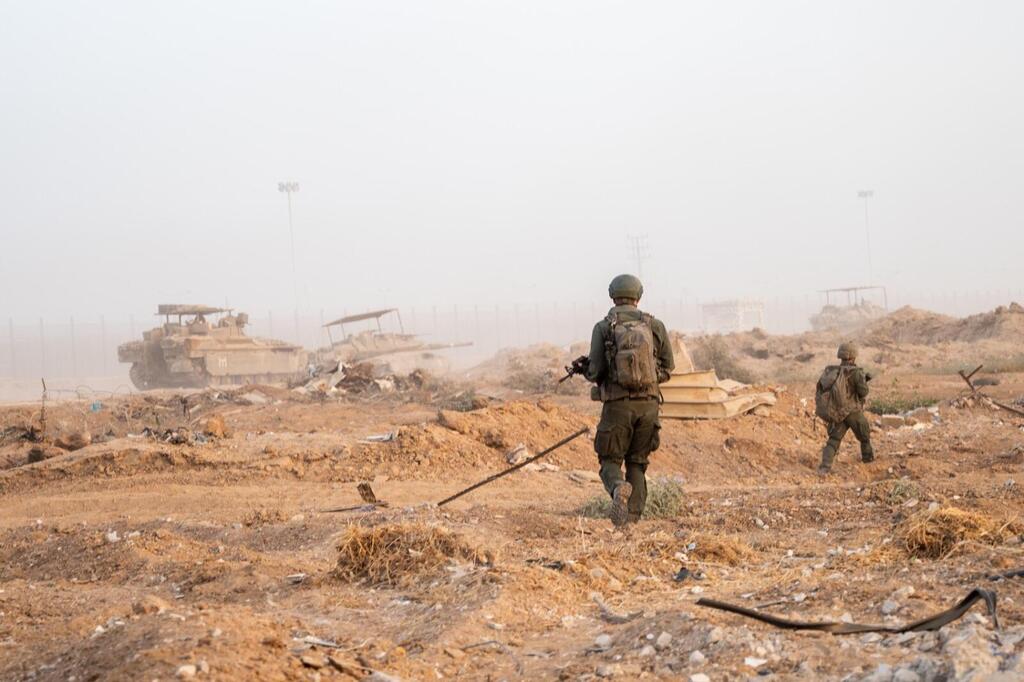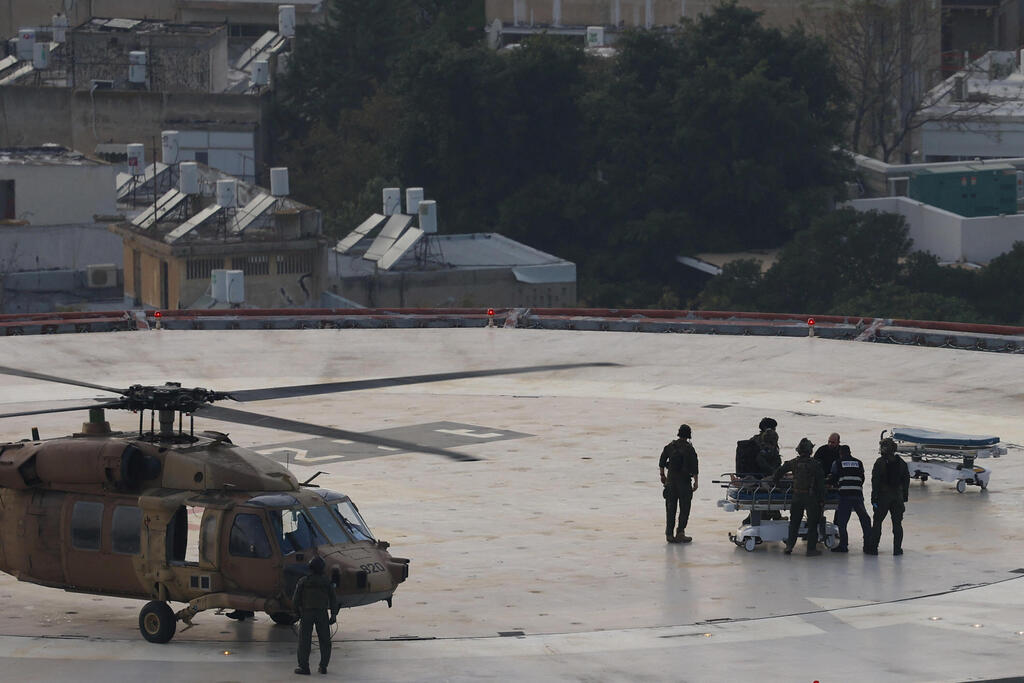Wednesday morning brought yet another grim announcement from the IDF: a soldier from the 222nd Battalion of the 2nd Brigade sustained serious injuries during a clash with terrorists in the northern Gaza Strip. His family had been informed after being evacuated to a hospital.
Following the IDF's intensified operations in Rafah and the central and northern regions of Gaza, hospitals have reported a significant increase in the number of wounded soldiers admitted for treatment. Data gathered by Ynet and Yedioth Ahronoth reveal that close to a hundred soldiers have been airlifted from the enclave to Israel's major hospitals.
Airlifting the wounded
(Video: IDF Spokesperson's Unit)
Barzilai Medical Center and Assuta Medical Center function as triage points for life-threatening injuries, but most wounded soldiers are subsequently transferred to major hospitals in central Israel and Jerusalem.
According to IDF statistics, 3,543 soldiers have been wounded since the beginning of the war, with 546 in serious condition and the rest in light to moderate condition. Since the launch of ground operations in Gaza, 1,752 soldiers have been wounded, 349 of them seriously. Additionally, 714 soldiers were injured in operational accidents.
"Since the fighting resumed with greater intensity, the number of helicopters landing here has increased from one per week to one or two a day," says Dr. Yoram Klein, head of the Trauma and Urgent Surgery Unit at Sheba Medical Center.
"The types of injuries are the same, predominantly from anti-tank missiles or explosives. Since the resumption of operations, I haven't seen injuries from gunfire, but the volume of injured arriving has clearly increased. The severity of injuries hasn't necessarily risen in this round, and there's no difference compared to previous ones."
With concerns about potential escalation in the north and increased rocket fire from Hezbollah, central hospitals are also preparing for the possibility of moving operations underground.
"Even at the peak of ground operations, a hospital the size of Sheba doesn't need reinforcement, but the critical moment will come if there's a confrontation in the north," Klein notes.
"We must be ready for a significant missile barrage. We have a well-organized plan to move underground to fully protected sites. We can't afford to be complacent because the situation in Lebanon is different in every aspect, including field evacuation and the speed of evacuation."
Tel Aviv's Sourasky Medical Center has also seen a notable rise in the number of wounded soldiers it receives. "Since entering Rafah, the fighting has dramatically escalated, not just there but also in northern Gaza," explains Dr. Eyal Hashavia, acting head of the trauma division and head of urgent surgery at the hospital.
"As a result, evacuations to central hospitals have significantly increased. A minority of the injured we received came from Rafah, with most coming from Jabaliya and northern Gaza. Before the resumption of fighting, we treated more serious injuries. The evacuation time from northern Gaza to our hospital is about 40 minutes, which is very fast, similar to the time it takes for a gunshot victim from southern Tel Aviv to reach us."
"The nature of injuries remains the same, with most common ones being from RPGs, explosives and less frequently from grenades and gunfire," adds Dr. Hashavia. "We have gone back to receiving at least one helicopter a day, which is quite a return to the previous situation, with each helicopter bringing one to three injured. The evacuation time from the helipad to our trauma room is two minutes and 40 seconds.
"Since the fighting resumed, most of the injured we have received are not in immediate life-threatening condition, which was a significant portion of the injured in the first round. Back then, we saw many limb injuries, significant vascular injuries and shrapnel to the brain, chest and abdomen.
"We are now seeing more injuries that are less multi-system. The severity of injuries is milder and more moderate. If the fighting in Rafah intensifies along with the fighting in northern, southern and central Gaza, the wounded from Rafah will be evacuated to Soroka Medical Center. Central hospitals will receive more seriously injured patients. The short-term evacuation destinations will also quickly reach capacity."







